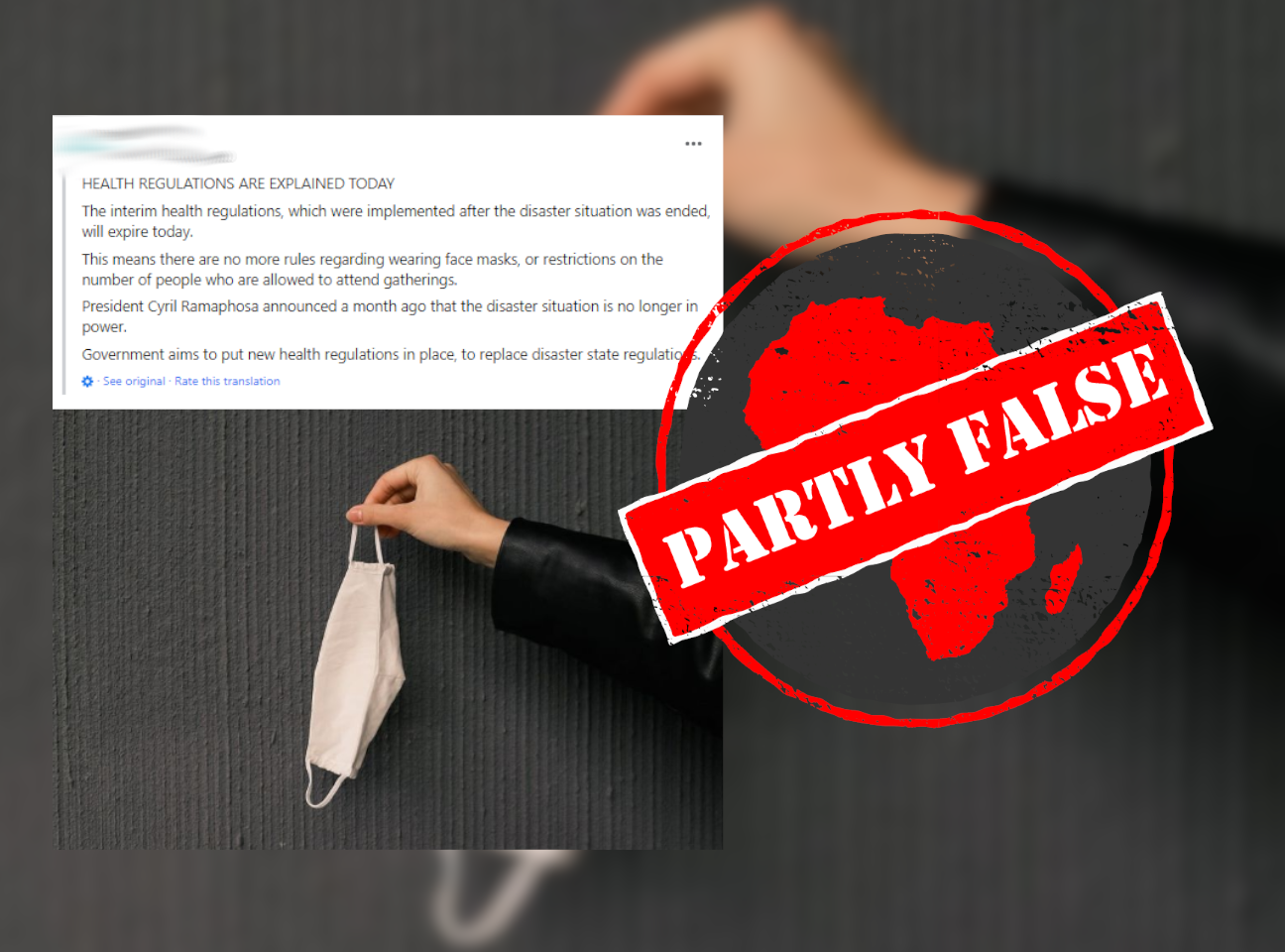“Gesondheidsregulasies verval vandag” begins a Facebook post in Afrikaans published on 4 May 2022. This translates to: “Health regulations expire today.”
The post claims that South Africa’s temporary health regulations to curb the spread of Covid-19 expired on 4 May and that there are no longer any regulations in place.
The post continues: “Dit beteken dat daar geen meer reëls is rakende die dra van gesigmaskers, of beperkings op die hoeveelheid mense wat byeenkomste mag bywoon nie.”
This translates to: “This means that there are no more rules regarding the wearing of face masks, or restrictions on the number of people who may attend events.”
The post ends with saying the government intends to put new regulations in place. It has been shared over 3,300 times since it was first published.
President Cyril Ramaphosa announced on 4 April that South Africa’s state of disaster, which was introduced to manage the Covid-19 pandemic, had ended.
He said that the pandemic would be managed in terms of the National Health Act and that “transitional measures” would be introduced until new regulations in the act came into effect.
These measures included still wearing face masks in public and restrictions on the number of people allowed to attend gatherings.
So is there any truth to this Facebook post claiming health regulations have expired? We checked.

New limited regulations requiring face mask wearing in effect
Ramaphosa said on 4 April that the transitional measures would be in place for 30 days, meaning that they did expire on 4 May. But this doesn’t mean that there are no restrictions in place.
In a press statement published on 4 May, the health department announced that the public consultation period for the new regulations in the health act had been extended until 5 July.
The statement said that the department had gazetted limited regulations “in order to ensure that there is no gap in terms of legal instruments to contain the spread of Covid-19”. In South Africa, government regulations and draft laws must be published in the government gazette for public comment.
These limited regulations include wearing face masks in public, restrictions on the number of people allowed to attend gatherings, and international travellers being required to show proof of vaccination or a negative Covid-19 test in order to enter South Africa.
These limited regulations came into effect on 5 May.
The transitional measures Ramaphosa announced on 4 April did expire on 4 May. But the health department has since gazetted limited regulations which mean that wearing face masks in public is still required and there are still restrictions in place to limit the spread of Covid-19.
Republish our content for free
For publishers: what to do if your post is rated false
A fact-checker has rated your Facebook or Instagram post as “false”, “altered”, “partly false” or “missing context”. This could have serious consequences. What do you do?
Click on our guide for the steps you should follow.
Publishers guideAfrica Check teams up with Facebook
Africa Check is a partner in Meta's third-party fact-checking programme to help stop the spread of false information on social media.
The content we rate as “false” will be downgraded on Facebook and Instagram. This means fewer people will see it.
You can also help identify false information on Facebook. This guide explains how.


Add new comment